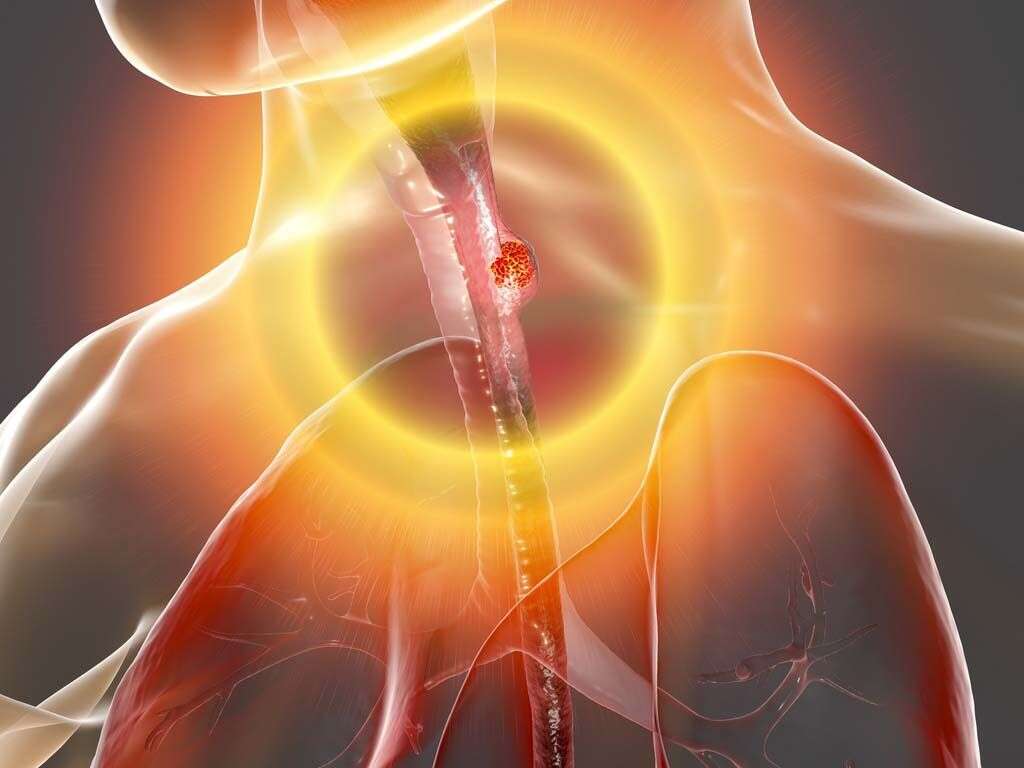Esophageal Cancer Causes
9. Achalasia
After we have swallowed our food, the muscles of the esophagus will contract and relax involuntarily in a wave-like pattern (peristalsis) to move the food downward until it reaches the lower esophageal sphincter. This sphincter is a ring of smooth muscle that closes tight to keep the contents of the stomach inside, but it relaxes when needed to allow food into the stomach. Achalasia is a condition where the relaxation of the lower esophageal sphincter (LES) is impaired and esophageal peristalsis is absent. This means the food will remain in the esophagus, and patients will experience symptoms like regurgitation, difficulty to swallow (dysphagia), chest pain, and heartburn. It is a potentially serious condition and it can go on to cause severe complications, including esophageal cancer.
There are several potential reasons for this correlation. Patients with this disorder have decreased esophageal motility, which can facilitate chronic inflammation by reduced clearance of food and bacteria from the esophagus. Also, if the relaxation of the LES is impaired, greater amounts of acid can easily reach the lower esophageal lining. Also, the pressure in the esophagus can increase due to a tight LES and lack of esophageal peristalsis, prolonging said exposure to acid.
Advertisement











